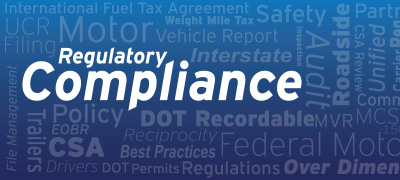Avoiding HIPAA fines and penalties is something a Covered Entity or a Business Associate has to treat as an issue of foremost importance. Something like 120 million individuals were affected by HIPAA breaches in 2015, highlighting the extent to which breaches can happen, and also the extent to which medical records are targeted. It is said that medical records command a higher price today in the black market than social security numbers and credit cards!

In the two decades since the creation of HIPAA, over $ 50 million have been levied as fines or penalties. This is why Covered Entities and Business Associates need to do everything they can towards avoiding HIPAA fines and penalties. The government is very serious about protecting healthcare records. It has repeatedly nudged the HHS to take the increased incidence of cyberattacks resulting in medical records theft very seriously and increase vigilance.
The HHS is hell bent upon enforcing HIPAA requirements
Phase 2 HIPAA audits are now underway, underscoring the need for the increased need for Covered Entities and Business Associates to devise ways of avoiding HIPAA fines and penalties. The basis to avoiding HIPAA fines and penalties is to get a clear and thorough understanding of HIPAA compliance requirements expected of a healthcare provider.

Why avoiding HIPAA fines and penalties rests on a clear understanding of how to put policies and procedures in place to ensure HIPAA compliance is that HIPAA compliance goes hand in hand with providing the appropriate patient rights and controls on its uses and disclosures of PHI.
Two aspects come into play if an organization that is being audited or is the subject of a compliance review has to avoid HIPAA fines and penalties. The first of these is to demonstrate to the HHS that it has the ability to demonstrate the way by which it addresses all of the required security safeguards. Two, the organization has to also have the documentation of the proper policies and procedures necessary for safeguarding patient PHI if it has to avoid HIPAA fines and penalties.
Get to understand the dynamics of HIPAA compliance for avoiding HIPAA fines and penalties
Avoiding HIPAA fines and penalties is not something that happens by chance. An organization cannot shoot in the dark and hope to get its HIPAA compliance right. If Covered Entities and Business Associates have to get their HIPAA implementation right; they need professional guidance on how to accomplish this. Given the cost of noncompliance; avoiding HIPAA fines and penalties is something all organizations have to strive to aim for.
How do they do it? This is the learning a webinar from MentorHealth, a leading provider of professional trainings for the healthcare industry, will be offering. Jay Hodes, who is President and Founder, Colington Security Consulting, LLC, will be the speaker at this highly valuable webinar on avoiding HIPAA fines and penalties. In order to learn how to avoid HIPAA fines and penalties and to benefit from the vast experience at HIPAA compliance that the speaker carries; please enroll for this webinar by visiting http://www.mentorhealth.com/control/w_product/~product_id=800900LIVE/?Wordpress-SEO
An explanation of what to do in order to avoid HIPAA fines and penalties
At this session, Jay will show how an organization can aim at avoiding HIPAA fines and penalties by just being compliant with the HIPAA requirements. He will show how a Business Associate or Covered Entity can provide the appropriate patient rights and controls on its uses and disclosures of Protected Health Information (PHI) and what all it has to have in place for doing so.

The way an organization that is the subject of a compliance review or is being audited needs to show to the HHS both the documentation necessary for safeguarding patient PHI, as well as the ability to show how it is addressing all of the required security safeguards if it has to avoid HIPAA fines and penalties will be explained at this webinar.
At this session, Jay will cover the following areas:
- Why was HIPAA created?
- Who Must Comply with HIPAA Requirements?
- What are the HIPAA Rules?
- Who Enforces HIPAA?
- Enforcement Case Examples
- Learning from Other’s Mistakes
- What are the penalties and fines for non-compliance and how to avoid them?
- Being Prepared for a HIPAA Audit or Investigation
- Questions


